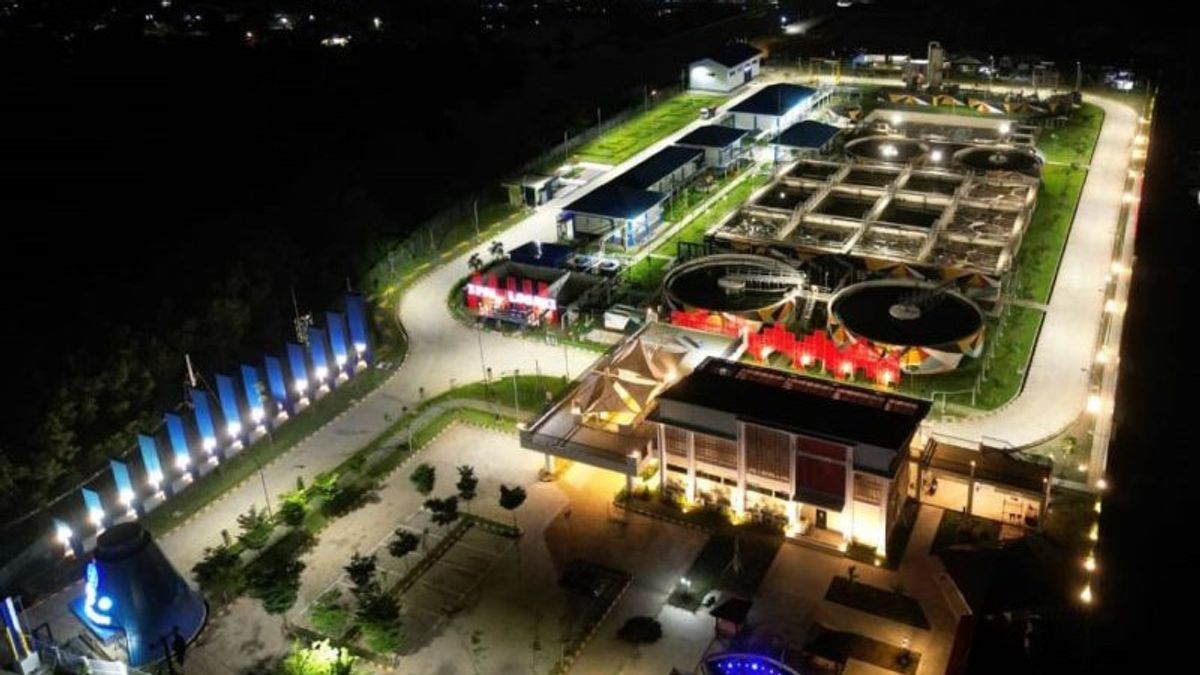JAKARTA - The Ministry of Public Works and Public Housing (PUPR) through the Directorate General of Human Settlements has completed a domestic-centralized wastewater management (SPALD-T) system in Makassar City, South Sulawesi.
"With the development of an urban-scale wastewater management system (SPAL), water agency pollution due to domestic waste water can be minimized, and provides added value in the form of clean water for the watering of parks and city public spaces," said PUPR Minister Basuki Hadimuljono in Jakarta, Antara, Sunday, February 11.
According to Basuki, the main goal is for better environmental quality, because settlements are getting denser, the waste will also increase, so they must be processed first before entering the water agency.
The construction of the SPALD-T Makassar City is part of the Metropolitan Sanitation Management Investment Project (MSMIP) program to improve integrated wastewater services in urban areas with a capacity of 16,000 m3/day.
Domestic SPAL development in Makassar City is considered effective because it uses the moving bed biofilm reactor (MBBR) system by reducing biological oxygen demand, denitrification and reducing nitrogen.
Thus, the resulting efluent can meet the quality standards according to the Regulation of the Minister of Environment Number P. 68/MenLHK/Secretary General/Kum.1/8/2016 concerning the quality of domestic waste water, including BOD levels below 30 mg/liter.
The development of the Makassar City SPALD-T began in November 2020 including the construction of IPAL with a capacity of 16,000 m3/day, the construction of 1 pump house unit, a 9.6 km piping water network, as well as the installation of house connections and commercial area connections.
Currently, the Makassar City SPALD-T construction has been completed and is ready to operate to support the Makassar City community sanitation service.
The construction of the SPALD-T starts from land maturation (location) funded from the Makassar City APBD, followed by the construction of domestic IPAL and pipeline networks through the Metropolitan Sanitation Management Investment Project (MSMIP) program with loan funds from the Asian Development Bank (ADB).
Then, the installation of 74 house connections and 25 commercial connections comes from the state budget and will be continued by the Makassar City Government until the service target of 14,000 connections is achieved which is divided into 8,400 domestic connections and 5,600 commercial connections.
SPALD-T Makassar City was built on an area of 2.37 hectares located in the Losari area, Maccini Sombala Village, Tamalate District. It is hoped that the construction of this centralized domestic IPAL can not only serve 41.000 people of Makassar City, but also to maintain the quality of groundwater and raw water, create a clean and healthy environment, as well as educational means to increase public awareness of the issue of environmental pollution.
SEE ALSO:
The English, Chinese, Japanese, Arabic, and French versions are automatically generated by the AI. So there may still be inaccuracies in translating, please always see Indonesian as our main language. (system supported by DigitalSiber.id)
Most Popular Tags
#Prabowo Subianto #New Year #pdip #Hasto Kristiyanto #nataru #NatalPopular
27 Desember 2024, 02:36
27 Desember 2024, 00:30
27 Desember 2024, 12:00
27 Desember 2024, 01:25


















